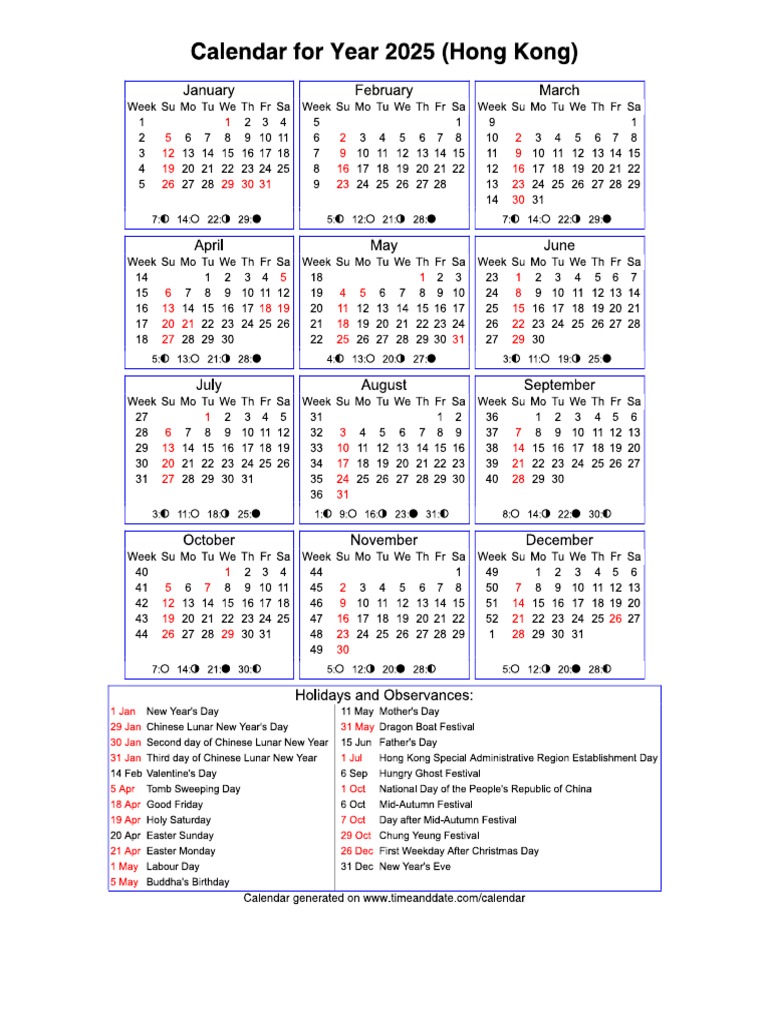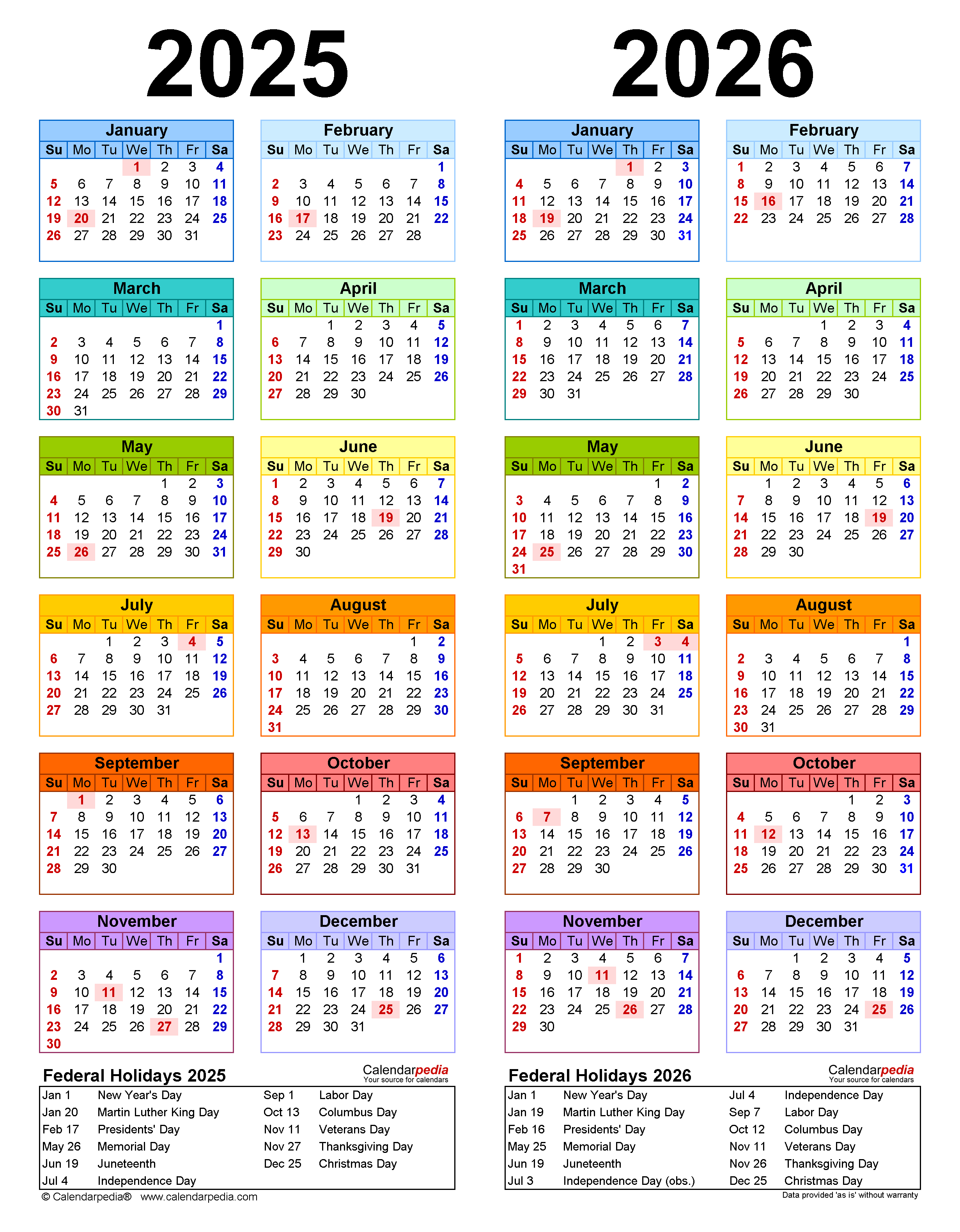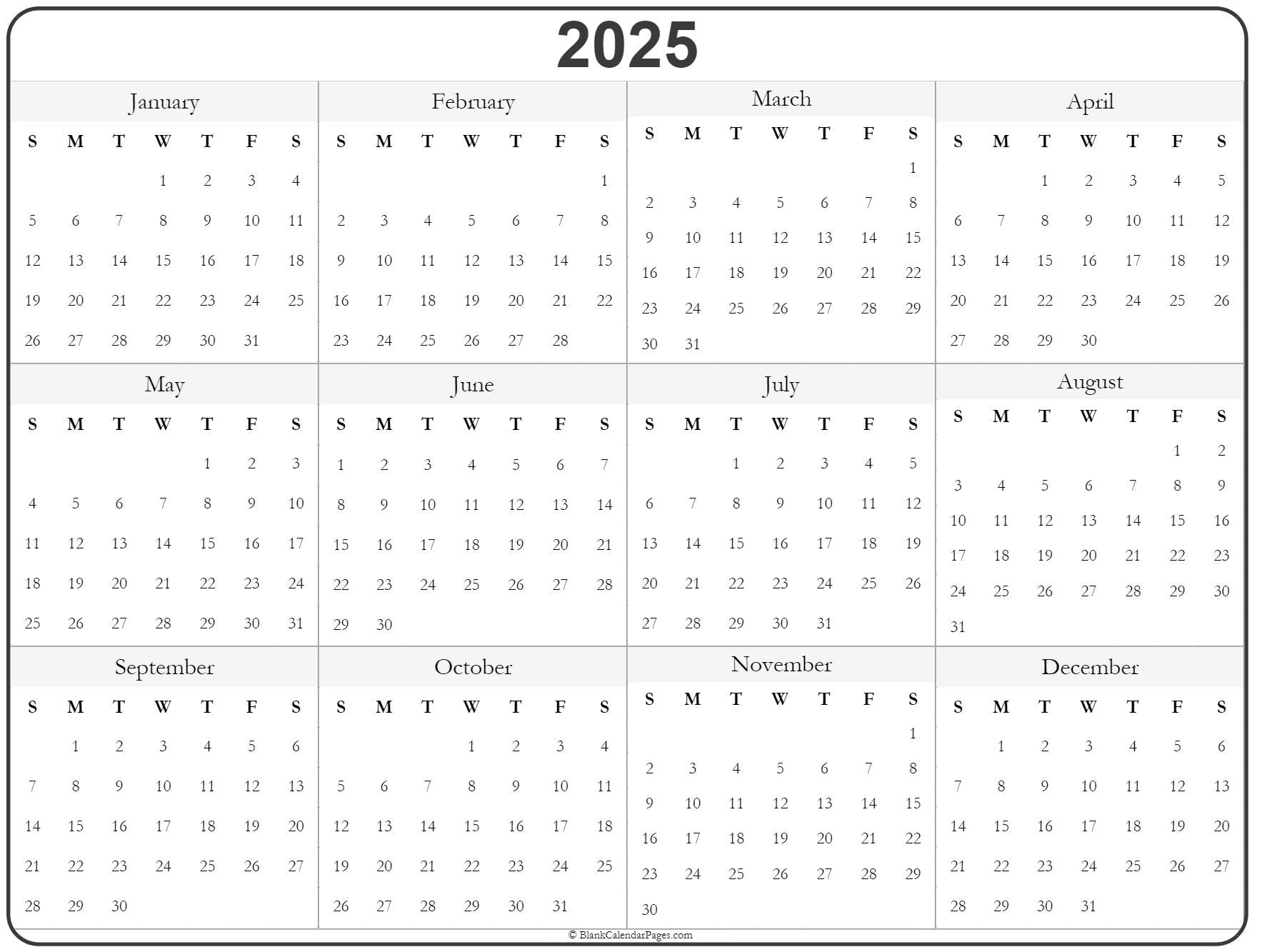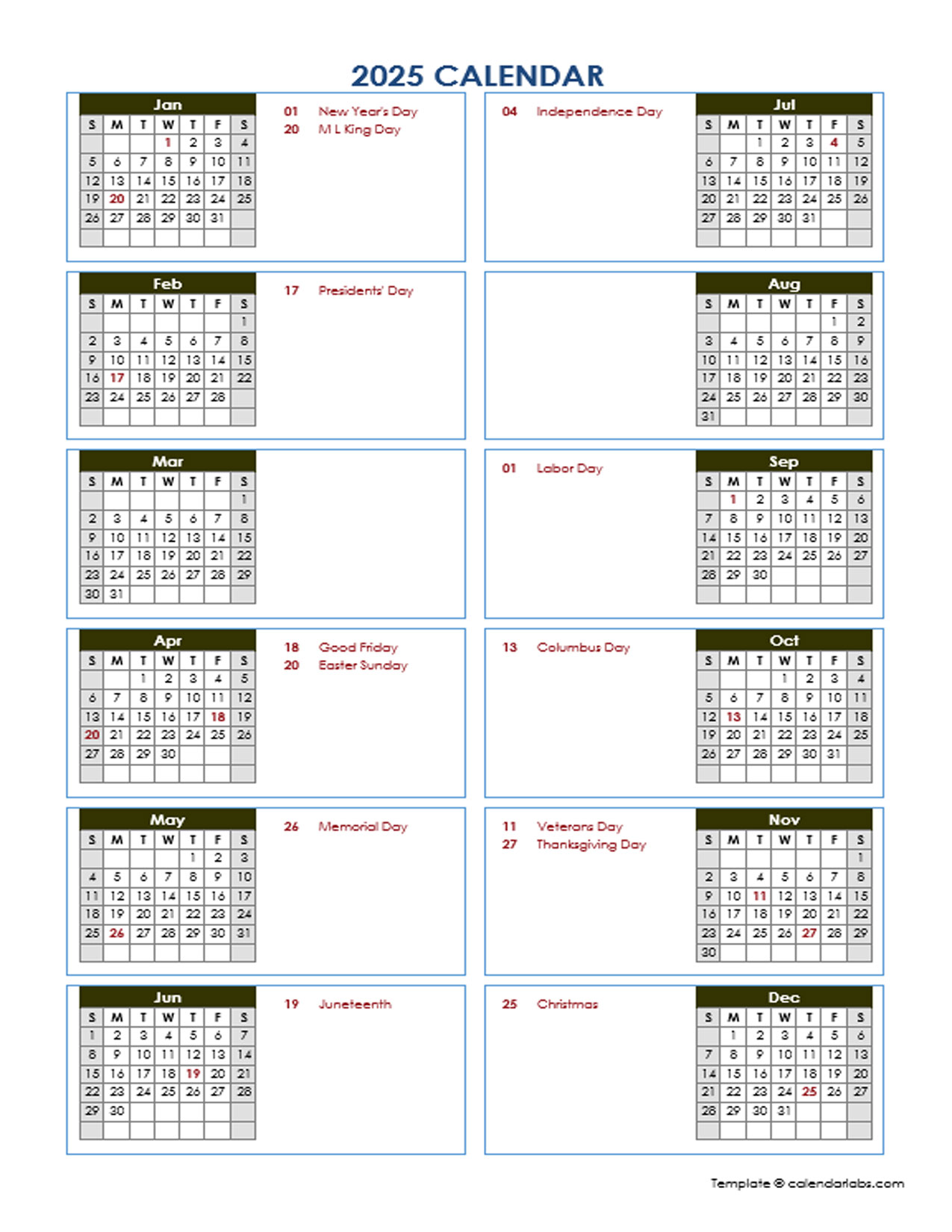Navigating the Future: A Guide to the 2025 Calendar in the United States
Navigating the Future: A Guide to the 2025 Calendar in the United States
Introduction
With great pleasure, we will explore the intriguing topic related to Navigating the Future: A Guide to the 2025 Calendar in the United States. Let’s weave interesting information and offer fresh perspectives to the readers.
Table of Content
Navigating the Future: A Guide to the 2025 Calendar in the United States

The year 2025, while seemingly distant, is rapidly approaching. As we navigate the complexities of the present, understanding the nuances of the upcoming year becomes increasingly crucial. This guide aims to provide a comprehensive overview of the 2025 calendar in the United States, highlighting key dates, observances, and potential implications.
Understanding the Calendar’s Significance:
The 2025 calendar, like any calendar, acts as a framework for organizing time and events. It provides a structured system for scheduling, planning, and remembering important dates. Beyond its practical utility, the calendar also reflects cultural values, traditions, and societal milestones.
Key Dates and Observances:
Federal Holidays:
- New Year’s Day (Wednesday, January 1): Marking the beginning of a new year, this holiday provides an opportunity for reflection and setting new goals.
- Martin Luther King Jr. Day (Monday, January 20): Honoring the legacy of Dr. Martin Luther King Jr., this day commemorates his fight for civil rights and equality.
- Presidents’ Day (Monday, February 17): A day to celebrate the contributions of past American presidents, this holiday acknowledges their leadership and impact on the nation’s history.
- Memorial Day (Monday, May 26): Observed on the last Monday of May, this holiday honors those who died while serving in the United States Armed Forces.
- Independence Day (Thursday, July 3): Marking the anniversary of the Declaration of Independence, this day celebrates the birth of the United States as an independent nation.
- Labor Day (Monday, September 1): Celebrated on the first Monday of September, this holiday recognizes the contributions of workers to the nation’s economy and society.
- Columbus Day (Monday, October 13): Observed on the second Monday of October, this holiday has been a subject of debate regarding its historical accuracy and impact on indigenous communities.
- Veterans Day (Wednesday, November 11): A day to honor all veterans who have served in the United States Armed Forces, this holiday recognizes their sacrifices and contributions.
- Thanksgiving Day (Thursday, November 27): Celebrated on the fourth Thursday of November, this holiday is a time for families and friends to gather and give thanks for blessings received.
- Christmas Day (Wednesday, December 25): A day to celebrate the birth of Jesus Christ, this holiday is widely observed as a time for family, faith, and gift-giving.
Other Notable Events:
- Super Bowl LIX (Sunday, February 2): The pinnacle of American football, the Super Bowl is a highly anticipated event that draws a massive audience.
- Academy Awards (Sunday, February 23): The Oscars, recognizing excellence in film, are a prestigious event that attracts global attention.
- World Series (October 28 – November 3): The championship series of Major League Baseball, the World Series is a highly competitive and celebrated event.
Potential Implications:
The 2025 calendar, while seemingly ordinary, may hold significant implications for various aspects of American life.
- Economic Trends: The calendar can provide insights into potential economic activity. For example, the holiday season often sees increased spending, while events like the Super Bowl can boost tourism and hospitality industries.
- Political Landscape: Election cycles and political campaigns can significantly impact the calendar, influencing public discourse and shaping policy agendas.
- Social and Cultural Shifts: The calendar can reflect evolving social and cultural trends. For instance, the growing awareness of diversity and inclusion may lead to the re-evaluation of traditional holidays and celebrations.
FAQs by 2025 Calendar United States:
Q: What are the most important holidays to observe in 2025?
A: The most important holidays in 2025 are those that are federally recognized, such as New Year’s Day, Martin Luther King Jr. Day, Presidents’ Day, Memorial Day, Independence Day, Labor Day, Columbus Day, Veterans Day, Thanksgiving Day, and Christmas Day. These holidays are typically observed with closures of businesses and schools, offering opportunities for celebration and reflection.
Q: How does the 2025 calendar differ from previous years?
A: The 2025 calendar is unique in its specific arrangement of days and dates, influenced by the Gregorian calendar system. However, the overall structure and key holidays remain largely consistent with previous years.
Q: What are some tips for effectively utilizing the 2025 calendar?
A: To effectively utilize the 2025 calendar, consider these tips:
- Plan ahead: Use the calendar to schedule appointments, meetings, and deadlines well in advance.
- Stay organized: Utilize the calendar to track important dates, events, and reminders.
- Be aware of cultural sensitivities: Be mindful of the significance of holidays and observances for different communities.
- Adapt to changing needs: The calendar can be customized to meet individual and organizational needs.
Conclusion:
The 2025 calendar, while a seemingly simple tool, offers a window into the future, providing a framework for organizing time, understanding cultural nuances, and navigating the complexities of the year ahead. By understanding its significance, key dates, and potential implications, individuals and organizations can leverage the calendar to plan, organize, and thrive in the year to come. As we move forward, the 2025 calendar serves as a reminder of the dynamic nature of time and the importance of staying informed and prepared.








Closure
Thus, we hope this article has provided valuable insights into Navigating the Future: A Guide to the 2025 Calendar in the United States. We appreciate your attention to our article. See you in our next article!